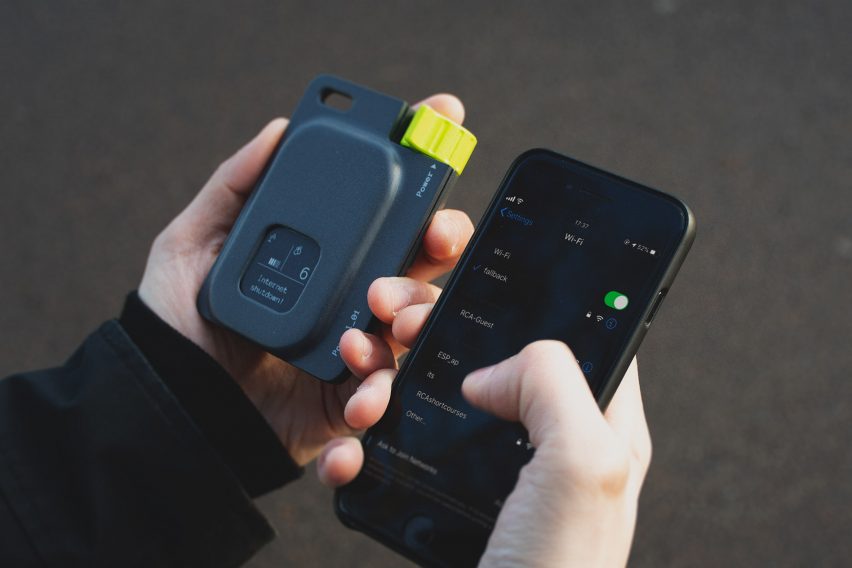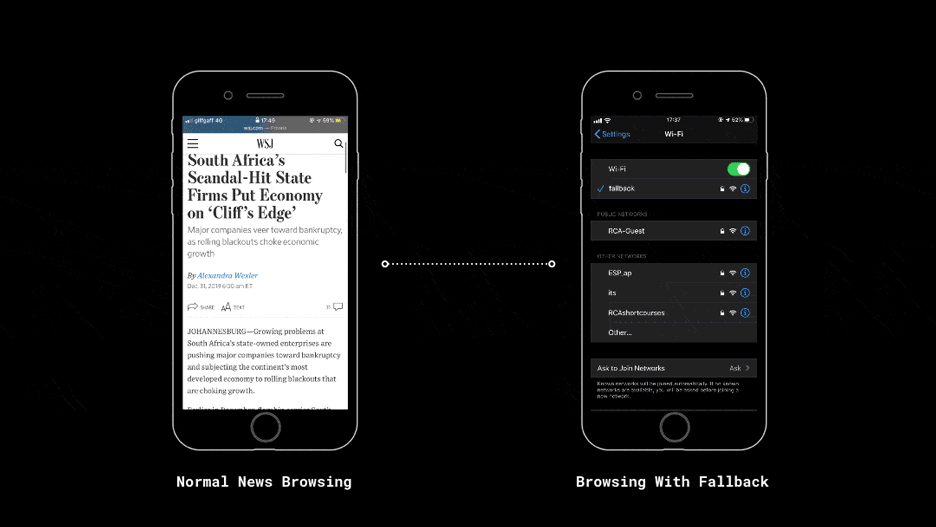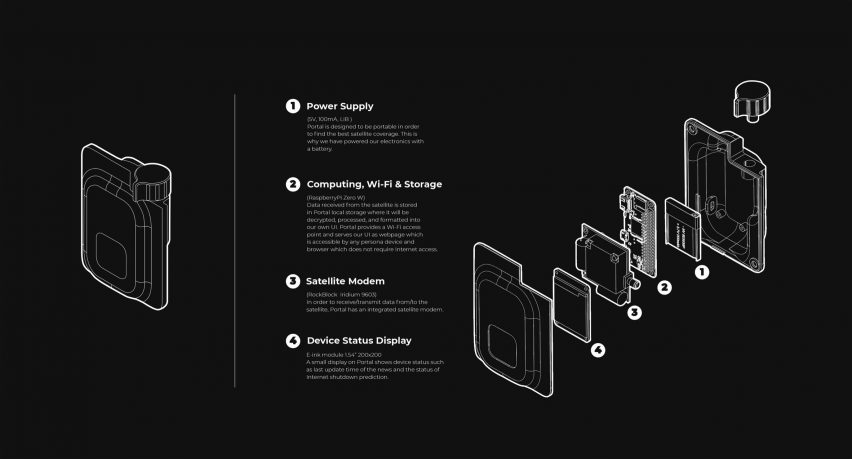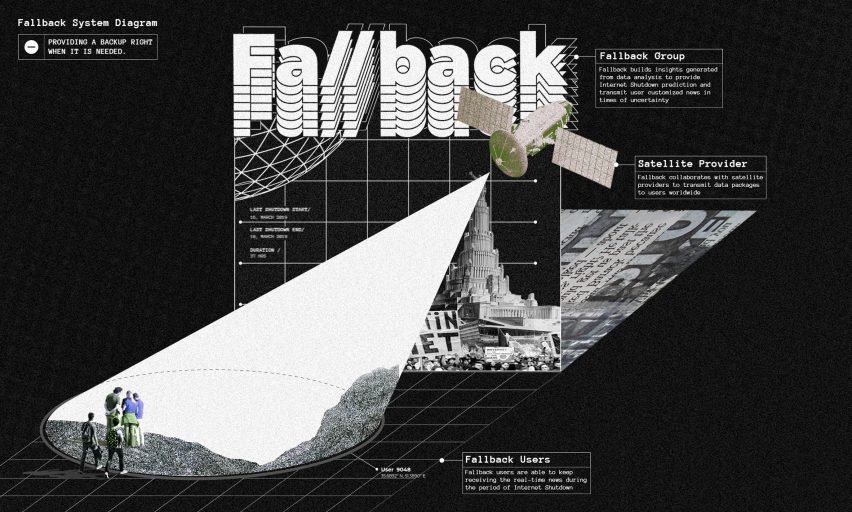Fallback device can bypass governmental internet shutdowns to give access to news
Students from London's Royal College of Art and Imperial College have devised a system that provides access to news coverage via a portable satellite modem during a government-enforced internet shutdown.
The subscription-based service, called Fallback, was developed by Khulood Alawadi, Yi-fan Hsieh, Bahareh Saboktakin and Qifan Zhao.
It allows members to pre-select the publications they read, so that during a shutdown their output can be encrypted and transmitted to them via satellite.

Using the Portal receiver, this information can then be decrypted and read on any Wifi-enabled device via a simplified user interface (UI).
Restricting or entirely disabling internet access has become an increasingly common tactic used by governments in a bid to control citizens and stunt their ability to organise and stay informed in times of social unrest.
Last year saw the highest number of internet showdowns in recorded history, with 122 major national or regional blackouts.

"I lived through the 2009 shutdown in Tehran myself," Saboktakin told Dezeen.
"And we also interviewed people that had experienced them, who talked about feeling scared and isolated," she continued. "You don't know what's happening a few blocks from you, let alone in a nearby town. Complete lack of access to real-time news is a traumatic experience and makes you feel completely out of control, unable to do anything about it."

To mitigate this, the Fallback system relies on a forecasting algorithm, which the team claims is able to predict which countries or regions are most at risk of a shutdown.
This algorithm factors in the existing level of censorship in a region, as well as the complexity of the local internet infrastructure, since the amount of different providers directly speaks to how feasible it is to disable the whole network.
"It's also sensitive to certain keywords," said Saboktakin. "These were selected based on our analysis of past shutdowns and trends around the use of certain phrases in the time leading up to it."
If the algorithm sounds a high-risk warning, articles published by selected publications are automatically backed up, and scraped for their essential information – meaning only words and no images.

Once encrypted, this data is sent to a satellite, and from there it can be accessed, stored and decrypted via the Portal satellite modem. This grey, palm-sized device resembles a pocket flask with a neon yellow button instead of a mouthpiece.
"We designed the Portal to require minimum interaction, it just has a switch and a status screen," she explained. "It's robust so it can survive different environmental conditions and it purposefully looks very different from valuables like smartphones, laptops and cameras, which are often confiscated during protests."

The device is portable, battery-powered and has its own hotspot. Connecting to this via any Wifi-enabled device automatically brings up an especially-designed UI, that allows the decrypted information to be consumed like regular articles.
"Portal does not provide the internet as we know it, it only provides the information a Fallback member has pre-subscribed to based on their location and interest," said Saboktakin.
"But the UI is interactive and lets you scroll and swipe between different articles to maintain some normalcy in the experience of browsing online news."

Beyond individual users, the hope is to ultimately target the service to NGOs and non-profits, who have a large network of staff in high-risk locations around the world, which means the information can reach a whole community through individual contact points.
Shutdowns are just one of the many ways that the internet can be used to control its users, and elsewhere designers have voiced concerns around digital surveillance and the rise of facial recognition and online tracking software.
Polish designer Ewa Nowak, for example, has developed an anti-AI mask that confuses face-detecting cameras, while US start-up Winston Privacy has released a filter that can be plugged into modems to scramble and anonymise browsing data.